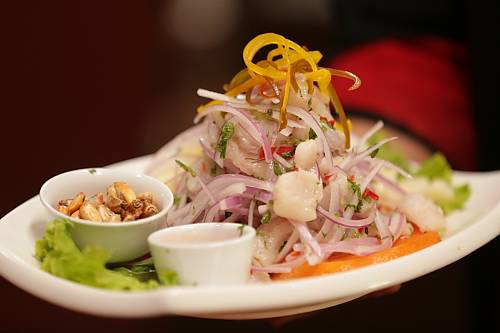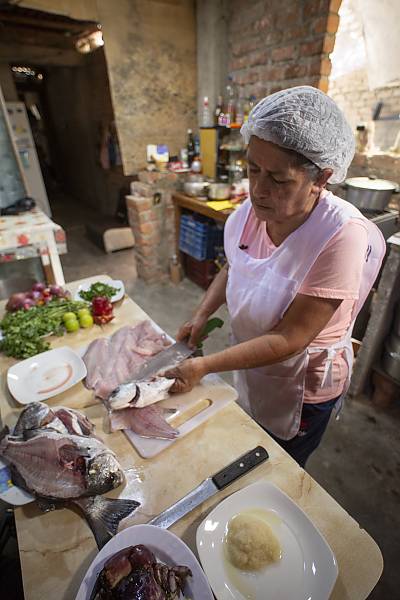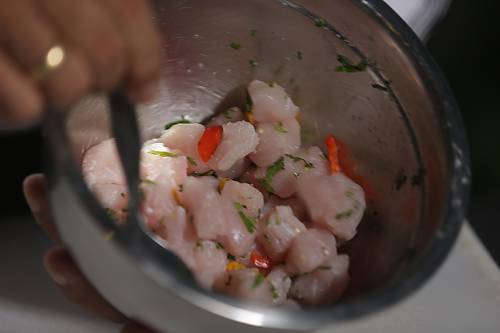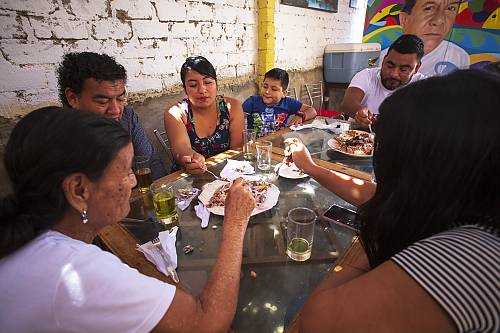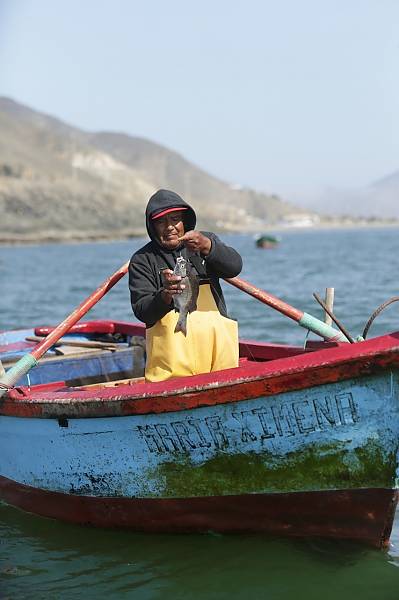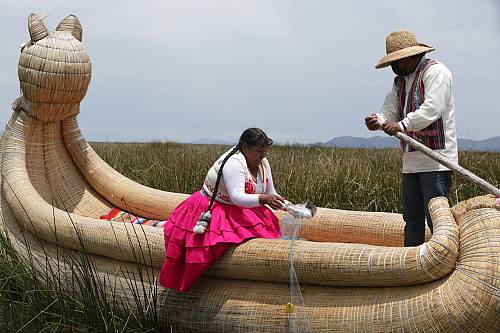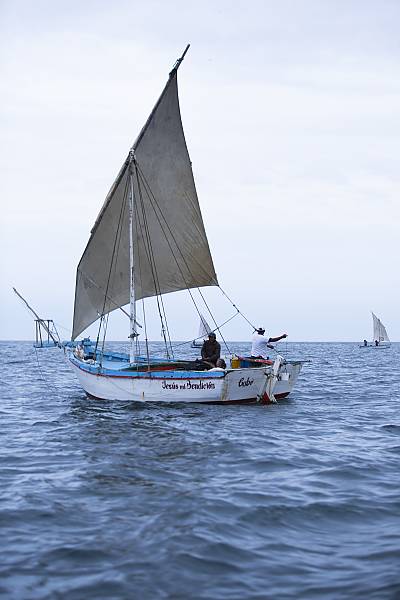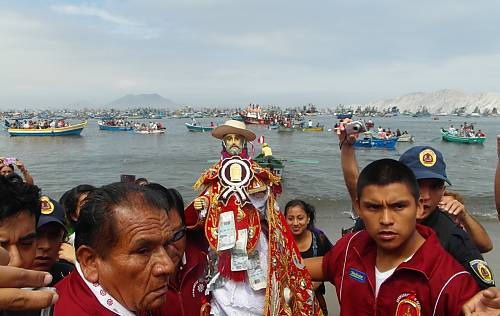Practices and meanings associated with the preparation and consumption of ceviche, an expression of Peruvian traditional cuisine
Inscribed in 2023 (18.COM) on the Representative List of the Intangible Cultural Heritage of Humanity

Ceviche is a traditional dish in Peru prepared with raw fish marinated in lemon, seasoned with chili pepper and salt and accompanied with locally grown produce. The dish is consumed both on a daily basis and during festivities. It is associated with moments of celebration and social gathering, as well as with ritual celebrations, particularly the festivity of Saint Peter, patron saint of artisanal fishers. Ceviche can be made at home or sold in traditional spaces such as cevicherías, where the work of traditional female cooks stands out. Its preparation and consumption entail specific practices, knowledge and meanings at each stage, from fishing to cultivating the ingredients and preparing the dish. As recipes vary from one region to the next, the dish also strengthens regional cultural identity. The knowledge and techniques are generally transmitted within families. This can be complemented by training programmes, for instance to contribute to the proper management of natural resources. Bearers see a direct correlation between the quality and flavour of the dish and local and sustainable produce. As a result, they have developed community measures for the protection and recovery of traditional ingredients, such as various species of fish.
